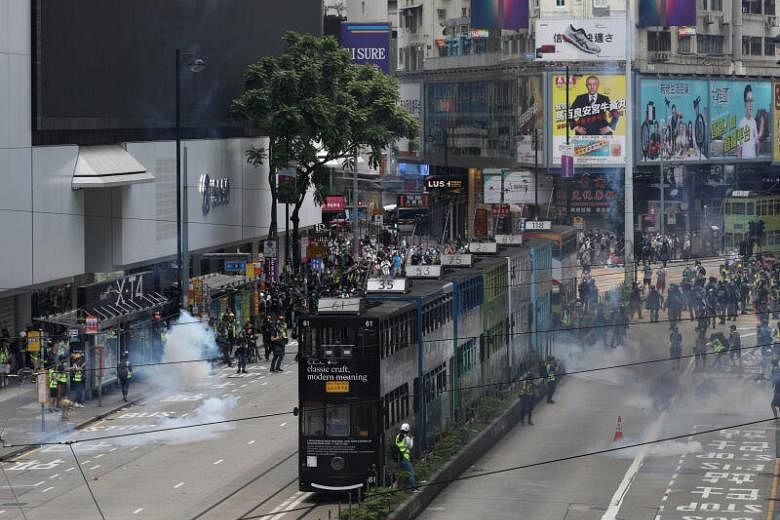BEIJING - The events of the past year made it "imperative" to improve the legal system in Hong Kong to improve national security, China's foreign minister said on Sunday (May 24).
He was commenting on new proposed legislation which he said was targeted at only a "small number of acts" and would not affect foreign investors.
Hong Kong has been rocked by protests since June last year, sparked off by the tabling of a controversial extradition Bill that led to deep splits in society and unrest which has had widespread economic impact.
China's top lawmaking body on Friday tabled a draft resolution that sets the stage for a national security law to be passed in Hong Kong, putting an end to a 17-year stalemate since a previous attempt at passing the law in 2003 sent half a million onto the streets of the city in protest.
"Since the turmoil in June last year, 'Hong Kong independence' organisations and local radical separation forces have become increasingly rampant, violent terrorist activities have been escalating and external forces have deeply illegally interfered in Hong Kong affairs," China Foreign Minister Wang Yi told a press briefing.
He said the developments caused "serious harm" to national security and Hong Kong's prosperity and stability.
"It is imperative to establish and improve the legal system and enforcement mechanism of the Hong Kong Special Administrative Region to safeguard national security," he said.
He added that the law targeted a "very small number of acts that seriously endanger national security".
"(A national security law) does not affect the high degree of autonomy of Hong Kong, does not affect the rights and freedoms of Hong Kong residents, and does not affect the legitimate rights and interests of foreign investors in Hong Kong," he said.
Since the announcement of the resolution on Friday, Hong Kong's shares have dipped and various foreign chambers of commerce in the city, including the American Chamber of Commerce, have voiced concerns.
They warned that the move could jeopardise business prospects and strike fear in foreign residents of the city.
The United States has also warned that such a law could lead to Hong Kong losing its special trade status, which allowed the city to avoid the bruising trade war between Washington and Beijing.
Of particular concern is a line in the draft legislation which states that "relevant national security organs" can set up units in Hong Kong, raising fears that Chinese security agencies will now be allowed to openly operate in the city.
Since Hong Kong's return to China, the former British colony has been governed under the "one country, two systems" principle, guaranteeing it a high degree of autonomy for at least 50 years with matters of defence and foreign affairs handled by Beijing.
This has included freedoms unseen in the mainland, such as an independent judiciary, a separate legislature and free speech.


